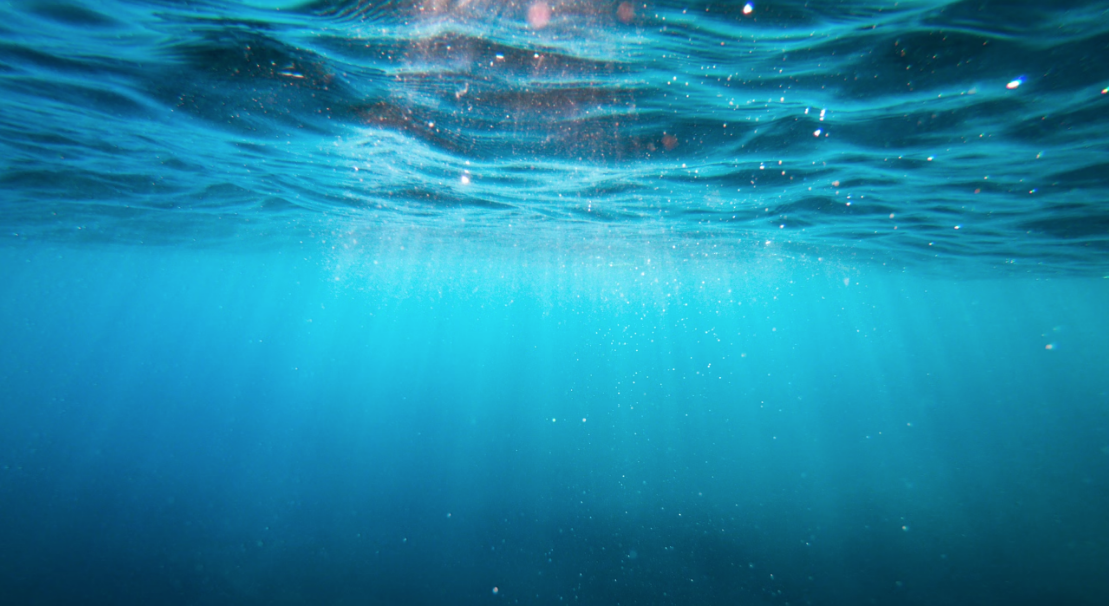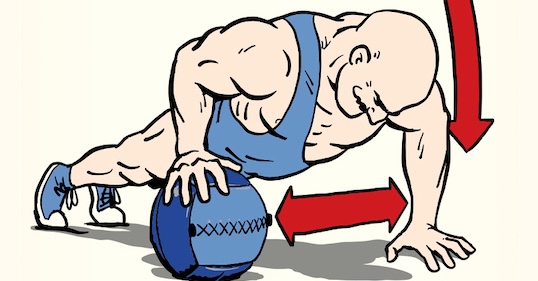Jack Rayner’s Nike Melbourne Marathon Win Proves Running Is The Ultimate Therapy
Nov 10, 2025Planet Aqua: A New Understanding of Humanity and The Future of Life on Earth
- Sep 29, 2024
- 0 Comments
542

In a recent article titled “Transformations: The End of the U.S. and the World as We Know It and The Truth About Our Collective Future,” I described the challenges we face in our world today.
“It is not easy to accept, but it is becoming more and more obvious that our country and our world are not doing well,”
I said.
“Some believe the U.S. is falling apart and the humans have made such a mess of the environment that we should call it quits, go out in a blaze of destruction, and leave planet Earth in the hands of species who are better able to be good partners in the community of life on Earth. Others believe that human ingenuity and innovative technologies will fix things and we have a bright future ahead. I have a different vision that was given to me in a sweat lodge in 1993 at a men’s gathering in Indianapolis, Indiana.”
In his book, Planet Aqua: Rethinking Our Home in the Universe, best-selling author Jeremy Rifkin offers is own vision for our future that very much resonates with mine. He says,
“What would happen if we suddenly realized that the planet we live on appeared eerily alien, as if we’d been teleported to some other distant world? That frightening prospect is now.”
What has happened to us? “To put it bluntly,” says Rifkin,
“our species, particularly in the Western world, has come to believe that we live on terra firma, a verdant green expanse of solid ground upon which we stand and thrive and which we call our home in the cosmic theater.”
That’s certainly the way I have come to think of our home. But our space travels and the pictures of the Earth that were sent back reveal a new understanding of our home.
“Earth was instantly reduced to a veneer atop of which has always been a water planet circling the sun, and to date, seemingly alone in its multiple shades of blue in our solar system and perhaps in the universe,”
says Jeremy Rifkin.
Looking at our world as “a water planet” allows us to better understand the poly-crises we face and how to deal with them more effectively. In his book, Planet Aqua, Rifkin gives us a new way to understand and potentially solve our problems. Rifkin lists a few of the crises that we face, along with the scientific references to support the statistics:
- Today, 2.6 billion people experience high or extreme water stress. By 2040, a total of 5.4 billion people—more than half of the world’s population—will live in 59 countries experiencing high or extreme water stress.
- Over the past decade, the number of recorded water-related conflicts and violent incidents increased by 270% worldwide.
- One billion people live in countries that are unlikely to have the ability to mitigate and adapt to new ecological threats, creating conditions for mass displacement of populations and forced climate migrations by 2050.
- Droughts, heatwaves, and massive wildfires are spreading across every continent, raging ecosystems and destroying infrastructure around the world.
Back in 1993, my vision in the sweat-lodge gave me a unique understanding of our present predicament and potential solutions. I saw the “sinking of the Ship of Civilization” and the emergence of “lifeboats for humanity” which you can read more about here. Among the conclusions that emerged from the vision and my subsequent explorations were the following:
- “Civilization” is a misnomer. Its proper name is the “Dominator System.”
As long as we buy the myth that “civilization” is the best humans can aspire to achieve, we are doomed to go down with the ship. In The Chalice & the Blade: Our History Our Future first published in 1987, internationally acclaimed scholar and futurist, Riane Eisler first introduced us to our long, ancient heritage as a Partnership System and our more recent Dominator System, which has come to be called “Civilization.”
In her recent book, Nurturing Our Humanity: How Domination and Partnership Shape Our Brains, Lives, and Future,written with peace activist Douglas P. Fry, they offer real guidance for creating a world based on partnership.
Historian of religions, Thomas Berry, spoke eloquently to our need to be honest about our present situation.
“We never knew enough. Nor were we sufficiently intimate with all our cousins in the great family of the earth. Nor could we listen to the various creatures of the earth, each telling its own story. The time has now come, however, when we will listen or we will die.”
- There is a better world, beyond civilization.
When I was given the book Ishmael, by Daniel Quinn,I got a clear sense of the two worlds that are competing for our attention: A world where hierarchy and dominance rule (Quinn calls it the world of the Takers) and a world where equality and connection rule (Quinn calls it the world of the Leavers). In his many books Quinn offers a clear contrast in worldviews.
In his book, Beyond Civilization: Humanity’s Next Great Adventure, Quinn says,
“I can confidently predict that if the world is saved, it will not be because some old minds came up with some new programs. Programs never stop the things they’re launched to stop. No program has ever stopped poverty, drug abuse, or crime, and no program ever will stop them. And no program will ever stop us from devastating the world.”
The Dominator System Emerged 6,000 Years Ago as a Result of Environmental Trauma.
In a 1999 article, “The Worst Mistake in the History of the Human Race,” the world-famous scientist and historian, Jared Diamond, offered these powerful and startling insights:
“To science we owe dramatic changes in our smug self-image. Astronomy taught us that our earth isn’t the center of the universe but merely one of billions of heavenly bodies. From biology we learned that we weren’t specially created by God but evolved along with millions of other species. Now archaeology is demolishing another sacred belief: that human history over the past million years has been a long tale of progress. In particular, recent discoveries suggest that the adoption of agriculture, supposedly our most decisive step toward a better life, was in many ways a catastrophe from which we have never recovered.” [Emphasis added by me, Jed Diamond].
A great deal has been written about what caused this catastrophe. Anthropologists had long demonstrated that humans had lived in relatively healthy balance with nature for two-million years. What happened 6,000 years ago set us on a course that now endangers our own lives and well as the lives of our children, future generations, and humanity itself.
In my most recent book, Long Live Men! The Moonshot Mission to Heal Men, Close the Lifespan Gap, and Offer Hope to Humanity, I discussed the research of environmental scientist Dr. James DeMeo. In his monumental, ten-year study that culminated in the book Saharasia, Dr. DeMeo began by asking a number of critical questions including the following:
- What are the causes and ultimate sources of human violence?
- Why do so many political and religious leaders behave in such a hypocritical manner, and why are the most religious nations often the most bloody and violent?
- What specifically happened to change the face of the world so dramatically for the worse, to produce the big mess in which so much of humanity finds itself today?
He offers his simple conclusion in the introduction on page 3 and follows with 451 additional pages of findings, maps, and discussions:
“Human violence appeared to have a specific time and place of origins on the Earth; antisocial violence was not distributed world-wide at all times in the past! Furthermore, it was learned, the origins of violence was precisely timed to a major historical epoch of climate change from relatively wet towards dry conditions.”
The full title of the book captures his entire thesis: Saharasia: The 4000 BCE Origins of Child Abuse, Sex-Repression, Warfare and Social Violence in the Deserts of the Old World.The book was originally published in 1998 and has added to my own understanding in the years since my sweat lodge vision in 1993.
Both Jeremy Rifkin and James DeMeo believe that the ultimate cause of Jared Diamond’s “Worst Mistake in the History of the Human Race” was related to water. DeMeo’s research shows that years of drought caused large areas of the Middle East to be turned into desert and was the original trauma that led to many of the problems that we are facing today.
Trauma, of course, impacts both women and men, but the response to trauma has been different for the two sexes as I will discuss in Part 2 of this series. If you aren’t already subscribed to my free weekly newsletter, you can do so here: https://menalive.com/email-newsletter/
Publisher: Source link







